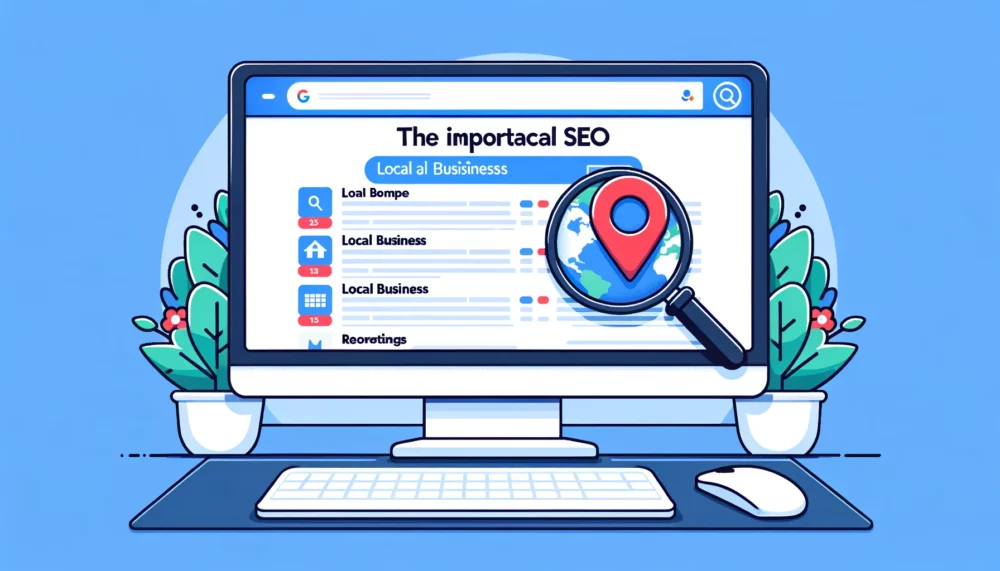Table of Contents Introduction The Importance of a Clear and Concise Headline Crafting Compelling Call-to-Action…

The Importance of Local SEO: Boosting Visibility Where It Matters Most
In the digital age, it’s not just about being online; it’s about being found. And for businesses targeting local markets, there’s no strategy more crucial than Local Search Engine Optimization (Local SEO). But what exactly is Local SEO, and why should it matter to your business? Let’s dive in.
What is Local SEO?
Local SEO refers to the practice of optimizing your online presence to attract more business from relevant local searches on search engines like Google and Bing. These searches take place when potential customers look for products or services near them, often using phrases like “near me” or specifying a city or neighborhood.
Why is Local SEO Important?
- Increased Visibility: Most users don’t venture past the first page of search results. With Local SEO, your business can appear in the “Local 3-Pack” (the top three local listings shown on Google’s first page). This prominent position can significantly increase your business’s visibility.
- Targeted Traffic: People searching locally are often ready to buy. For instance, someone searching for “best Italian restaurant near me” is likely looking for a place to dine immediately. Appearing in local searches connects you with customers at the precise moment they’re seeking your services.
- Builds Trust: A well-optimized local online presence can earn you a spot in Google’s coveted local listings, which users often trust as reputable businesses.
- Beat the Competition: Many local businesses haven’t tapped into the potential of Local SEO yet. By investing in it, you can gain a competitive edge in your area.
Key Components of Local SEO:
- Google My Business (GMB) Listing: This free tool from Google allows businesses to manage how they appear in Google Search and Maps. It’s crucial to claim, verify, and optimize your GMB listing, ensuring accurate business details, posting regular updates, and encouraging customer reviews.
- Online Reviews and Ratings: 88% of consumers trust online reviews as much as personal recommendations. Encourage satisfied customers to leave positive reviews on Google, Yelp, and other relevant platforms. Responding to reviews, both positive and negative, also shows potential clients that you care about feedback.
- Localized Content: Your website should feature content relevant to your local audience. This can include blog posts about local events, news, or anything that connects your business to the community.
- On-Page SEO: This includes optimizing meta tags, URL structure, and content with local keywords (e.g., “Dentist in [City Name]”). Additionally, ensure your website’s name, address, and phone number (NAP) are consistent across the web.
- Local Link Building: Gaining backlinks from reputable local websites helps reinforce your business’s association with a particular locale and boosts your reputation in the eyes of search engines.
- Mobile Optimization: Many local searches happen on mobile devices. A responsive, mobile-friendly site ensures users have a seamless experience, which can directly influence rankings and conversions.
Conclusion
In the fast-paced world of online marketing, where global giants often seem to dominate, Local SEO offers local businesses a tangible way to level the playing field. It’s not just about being seen—it’s about being seen by the right people at the right time. Investing in Local SEO not only helps increase your online visibility but also connects you directly with customers in your community who are actively seeking your products or services.
Remember, every local search represents an opportunity. With a robust Local SEO strategy, you ensure that when potential clients in your community turn to search engines for guidance, it’s your business they find. If you’re unsure where to start or how to optimize your local presence further, consider seeking professional expertise. The potential return on investment, in terms of both traffic and revenue, is too significant to ignore.



